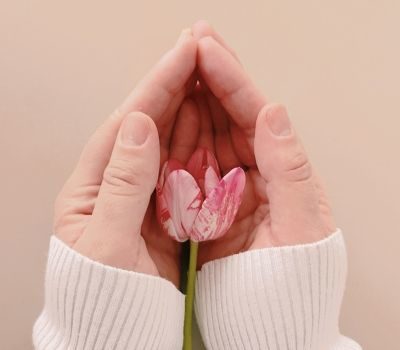
Cheryl Groskopf, LMFT, LPCC
Holistic Anxiety, Trauma, and Attachment Therapist in Los Angeles
CPTSD Therapy In Los Angeles
Are These Quirks Or Symptoms of Trauma?
Ever wondered if your quirky habits are just that – quirks – or if they might be signs of something more serious, like Complex Post-Traumatic Stress Disorder (CPTSD)? As a therapist in Los Angeles who gets it, I’m here to help you navigate this topic and figure out the difference. Whether you’re just curious or need some guidance, you’re in the right place.
If you’re feeling overwhelmed, anxious, or weighed down by past traumas, it’s time to consider seeking help. My practice specializes in helping people understand their experiences and develop coping strategies that actually work. Therapy isn’t about sitting in a chair and spilling your guts to a stranger – it’s about real, meaningful conversations and practical steps toward healing. In this blog, we’ll explore what makes someone quirky versus what might indicate CPTSD – and how CPTSD Therapy in Los Angeles can support your journey to wellness. And hey, if you’re thinking, “Great, another thing to add to my list of issues,” don’t worry—you’re not alone, and there’s always a way forward.
| For more details on how therapy can help, check out my pages on trauma therapy and anxiety therapy in Los Angeles.
CPTSD Therapist Los Angeles | Heal Today
5 Ways to Tell if It’s a Quirk or CPTSD
Does it Make You Happy or Anxious?
- Quirk: You’re all smiles when you line up your record collection.
- CPTSD: You feel like the world’s ending if your records are out of place. Anxiety level: nuclear meltdown.
Impact on Daily Life
- Quirk: Your habit of organizing books by color is Instagram-worthy.
- CPTSD: You spend so much time rearranging books that you forget to eat, sleep, or live. Your life is now one endless episode of “Extreme Home Makeover: Book Edition.”
Control Factor
- Quirk: You like your morning coffee made just right. It’s your little ritual.
- CPTSD: If your coffee routine is disrupted, you spiral into a pit of despair and can’t function for the rest of the day.
Social Influence
- Quirk: Friends think your love for vintage comic books is adorable.
- CPTSD: You avoid social events because the thought of being around people triggers emotional flashbacks. Friends now think you’ve joined a witness protection program.
Emotional Flashbacks
- Quirk: You have fond memories of your childhood stuffed animals.
- CPTSD: Certain smells or sounds bring back intense, painful emotions from past trauma, making you feel like you’re reliving the nightmare. It’s like a bad snippet that keeps playing on repeat.
Understanding these differences can help you figure out if it’s just a charming quirk or something more serious like CPTSD. If it’s the latter, don’t hesitate to seek help from a CPTSD therapist in Los Angeles.

CPTSD Therapist Los Angeles
What Are Quirks, Really?
So let’s talk about quirks. You know, those little habits that make you, well, you! Maybe you’re obsessed with collecting funky records of a specific band only 3 people in the world know about, or you have a super specific way of organizing your books by color. These quirks are harmless and often add a bit of charm to your life. Think of quirks as the ways that make your personality interesting. They don’t cause you distress or mess with your daily life—they’re just part of what makes you unique.
Now, let’s be real. We all have our quirks. Maybe you need to triple-check that the door is locked before you leave the house, or you can’t stand it when your food touches on the plate. These behaviors might seem odd to others, but they bring you comfort and don’t really hurt anyone. Quirks can be fun and endearing, and they usually don’t interfere with your ability to function day-to-day.
But here’s the thing: sometimes what we think are quirks can actually be coping mechanisms for deeper reasons. If you find that these habits are starting to take over your life, causing you anxiety or making it hard to connect with others, it might be worth taking a closer look. This is where understanding the difference between being quirky and having CPTSD becomes important. * SPOILER ALERT: there’s more to this than meets the eye, and getting the right help can make all the difference.

Understanding CPTSD Therapy in Los Angeles
What is CPTSD?
Now, let’s dive into CPTSD, which stands for Complex Post-Traumatic Stress Disorder. Unlike regular PTSD, which can result from a single traumatic event, CPTSD develops from prolonged exposure to trauma, such as ongoing abuse or neglect. It’s like PTSD’s cousin, with a few extra layers. If you’ve been through the wringer over a long period of ongoing “lesser” known traumas (i.e. emotionally or physically abusive relationship, growing up in a neglectful home, etc), you might be dealing with CPTSD. And trust me, you’re not alone—many people in Los Angeles and beyond are in the same boat.
Benefits of Somatic Therapy in LA for CPTSD
Symptoms of CPTSD
So, how do you know if you’re dealing with CPTSD? Here are some key symptoms:
- Emotional Flashbacks: Unlike regular flashbacks, these don’t come with visual memories. Instead, you feel the intense emotions from the trauma, as if you’re reliving it.
- Negative Self-View: Feelings of worthlessness, guilt, or shame that seem to hang around like an uninvited guest.
- Difficulty with Relationships: Struggling to trust others, feeling detached, or having trouble maintaining close relationships.
- Dissociation: Feeling disconnected from yourself or your surroundings, almost like you’re watching your life from the sidelines.
- Chronic Anxiety: Constantly feeling on edge, anxious, or living with a sense of dread that just won’t quit.
- Physical Symptoms: Headaches, stomach issues, or chronic pain without a clear medical cause.
| For a deeper dive into these symptoms, check out the Somatic Experiencing Trauma Institute. They offer a ton of information about how trauma impacts the body and mind.

how cptsd impacts your life in la
How CPTSD Differs from Quirks
Understanding the difference between quirky behaviors and CPTSD symptoms can be an important step in your healing journey, and point you in the right direction. Quirks are those little habits that don’t cause significant distress or disrupt your daily life. But CPTSD symptoms can be overwhelming and make it hard to function normally. If your behaviors are linked to deep-seated anxiety, fear, or distress, it’s time to consider that there might be more going on.
Seeking Help in Los Angeles
If you think you might be dealing with CPTSD, it’s important to seek professional help. A CPTSD therapist can help you make sense of your experiences and develop effective coping strategies. Therapy isn’t just about talking—it’s about finding practical ways to manage your symptoms and improve your quality of life.

Complex PTSD Therapist Los Angeles
Therapeutic Approaches for CPTSD
There are several therapeutic approaches that can help with CPTSD:
- Somatic Therapy: Focuses on the mind-body connection and helps release trauma stored in the body.
- Internal Family Systems (IFS): Helps you understand and heal different parts of yourself affected by trauma.
- Attachment-Based Therapy: Focuses on building healthy relationships and healing past attachment wounds.
| Understanding these approaches can help you choose the right therapy for your needs. For more information on these therapies, check out the Sensorimotor Psychotherapy Institute.
By seeking help and finding the right therapeutic approach, you can start to heal and lead a more fulfilling life. Don’t let CPTSD control you—take the first step towards recovery today.
Trauma Therapy in Los Angeles: Heal From CPTSD
Self-Reflection: Is It a Quirk or CPTSD?
Let’s do a little self-reflection exercise. Think about some of your quirks. Write them down. Now, ask yourself:
Do these quirks make me feel happy or safe?
Do I get anxious or upset if I can’t do these things?
Are these behaviors affecting my relationships or daily life?
If your quirks bring you joy and don’t cause distress, they’re likely just quirks. But if they’re linked to anxiety, fear, or distress, it might be worth exploring further. For more personalized insight, consider contacting a CPTSD therapist in Los Angeles.
Seeking Help for CPTSD
If you’re thinking some of your behaviors might be more than just quirks, it’s important to seek help. Talking to a therapist that utilizes a holistic approach to healing can provide clarity. Therapists can help you understand your experiences and develop coping strategies. There’s no shame in reaching out for support. It’s a sign of strength.

Practical Tips for Managing Symptoms
Coping Strategies for CPTSD
Here are some practical coping strategies if you think you might have CPTSD:
- Mindfulness: Practice being present in the moment. It can help reduce anxiety and dissociation.
- Grounding Techniques: Use your senses to bring yourself back to the present. For example, hold a cold object or listen to calming music.
- Self-Compassion: Be kind to yourself. Acknowledge your struggles without judgment.
- Healthy Boundaries: Learn to set and maintain boundaries in your relationships to protect your well-being.
Building a Support System
Having a support system is necessary when healing from complex trauma. Whether it’s friends, family, or support groups, surrounding yourself with understanding and supportive people can make a big difference. Don’t hesitate to lean on them when you need to.

Trauma Therapy in Los Angeles: Heal From CPTSD
Finding a CPTSD Therapist in Los Angeles
The Importance of Professional Help
If you think you might be dealing with CPTSD, it’s important to seek professional help. A CPTSD therapist can help you make sense of your experiences and develop effective coping strategies. Therapy isn’t just about talking—it’s about finding practical ways to manage your symptoms and improve your quality of life.
What to Look for in a Therapist
When looking for a CPTSD therapist in Los Angeles, consider their experience, training, and therapeutic approach. Many specialize in trauma recovery, body-centered psychotherapy, and mindfulness practices. Check out Psychology Today – Somatic Therapists in Los Angeles for a comprehensive list of therapists.
Connect with a CPTSD Therapist in Los Angeles
Meet Cheryl Groskopf, LMFT, LPCC
Hey there! I’m Cheryl Groskopf, a licensed anxiety, trauma, and attachment therapist based in Los Angeles. My approach goes beyond the typical talk therapy. I blend Somatic Therapy, Holistic Techniques, and Internal Family Systems (IFS) to offer a truly integrative approach to dealing with anxiety, trauma, CPTSD, and more. Think of it as therapy with an actual purpose, where we get to the root of what’s going on and work on real, lasting change.
In my practice, I aim to create a space where you feel seen, heard, and understood. I’m all about helping you take charge of your anxiety and change your relationship with it. Whether you’re dealing with the fallout from a narcissistic parent, navigating the complexities of attachment issues, or just trying to make sense of past traumas, I’m here to help. And trust me, there’s no judgment here—just a commitment to helping you live the life you want. If you’re ready to start this journey, let’s chat!




